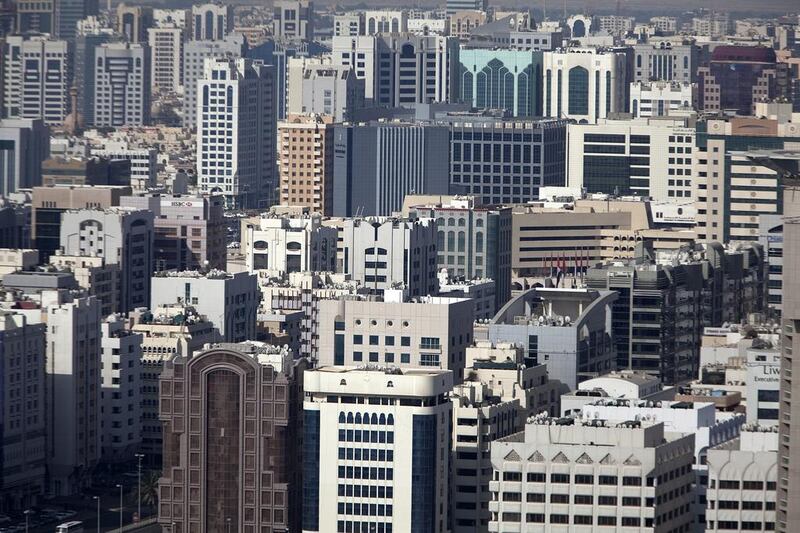The other night I got lost on Al Maryah island. True, it's not a very big island, and true, you'd think that on an island you could just head to the water and then get your bearings, but it's impossible to get to the water's edge unless you're on foot, and I was in a car, with a google map that looked like a lace-making pattern rather than roadway directions.
It’s my fault that I got lost, I suppose. I parked in a different car park than I usually do, and made what would have been the correct turn had I been coming from my usual spot, only to find myself trapped in a maze of traffic bollards that herded me in a series of one-way loops and curves until the road disappeared into the sand behind an unfinished building.
From my position at the end of the road, I could see the intersection where I wanted to be and the street that would take me over the bridge back into town. Lights gleamed along the road as cars whipped past, but if I looked in the other direction, it was empty darkness, just sand stretching to the water and then in the distance, the lights of the cranes on Saadiyat. It was as if I'd parked at the pivot between "developed" and "undeveloped," between what Abu Dhabi wants to be and what Abu Dhabi was.
When I finally made my way back through the bollard maze to the intersection where I had meant to be all along, mine was the only car there. I counted at least ten different traffic lights, dedicated left turn lanes, right turn lanes, straight-ahead lanes, in that empty space. Some of the turns for which there were already stoplights weren’t actually possible, however, because the roads themselves haven’t been built yet, and there are construction fences stretched across the gaps to prevent access.
_____________________
Read more by Deborah Lindsay Williams
[ De-cluttering is essential, but then so is nostalgia ]
[ What happens if we lose our anchors to the past? ]
[ A bowl of soup and a spot of cultural exchange ]
_____________________
We live in a city of aspirational intersections: traffic signals clustered together in hopes that eventually there will be traffic to regulate.
The US historian Thomas Bender wrote The Unfinished City, a book about New York City, in which he examines the ways that urban development weaves together "the familiar and the new, nostalgia and adventure, the archaic and the novel." He argues that even into the 21st century, New York (and other major cities) are still inventing themselves, and although he does not talk about Abu Dhabi, I think Abu Dhabi illustrates his ideas on an almost larger-than-life scale. It is impossible to avoid Abu Dhabi's transformations, whether you're looking at grand projects like Louvre Abu Dhabi or Midfield Terminal or at my very small misadventure on a road that ended in the sand.
I confess that as I drive around, I sometimes wonder who is going to live in all these newly built towers, or stay in all the new hotels, or drive through all these intersections. "If you build it, they will come," says a character in Field of Dreams, an old Kevin Costner movie about a man who feels compelled to build a baseball field on his farm. I've never seen that movie, so I don't know if the baseball players ever showed up in the corn fields, but perhaps the same holds true in urban planning: will drivers appear if there are intersections to summon them?
As a New Yorker who has lived in Abu Dhabi for seven years (I don’t think one every fully relinquishes “New Yorker” status), I am still amazed that my life is so car-centric; I own two cars now, and while I realise that by some standards that’s small potatoes, to me it seems rather extraordinary, and not entirely positive. In my imagining of Abu Dhabi’s ceaseless evolution, there are sidewalks and bike-paths everywhere, rather than just more lanes of traffic. I think, if I’d been on a bicycle the night I got lost, I’d have been able to turn around and find my way back more easily.
Maybe, if you build bike-paths, the bicycles will come.
Deborah Lindsay Williams is a professor of literature at NYU Abu Dhabi





